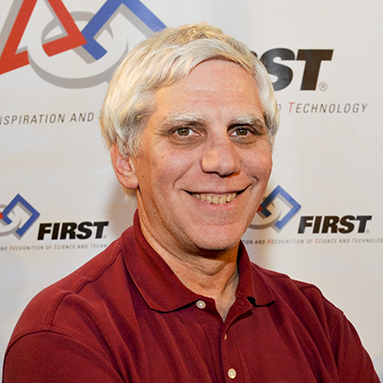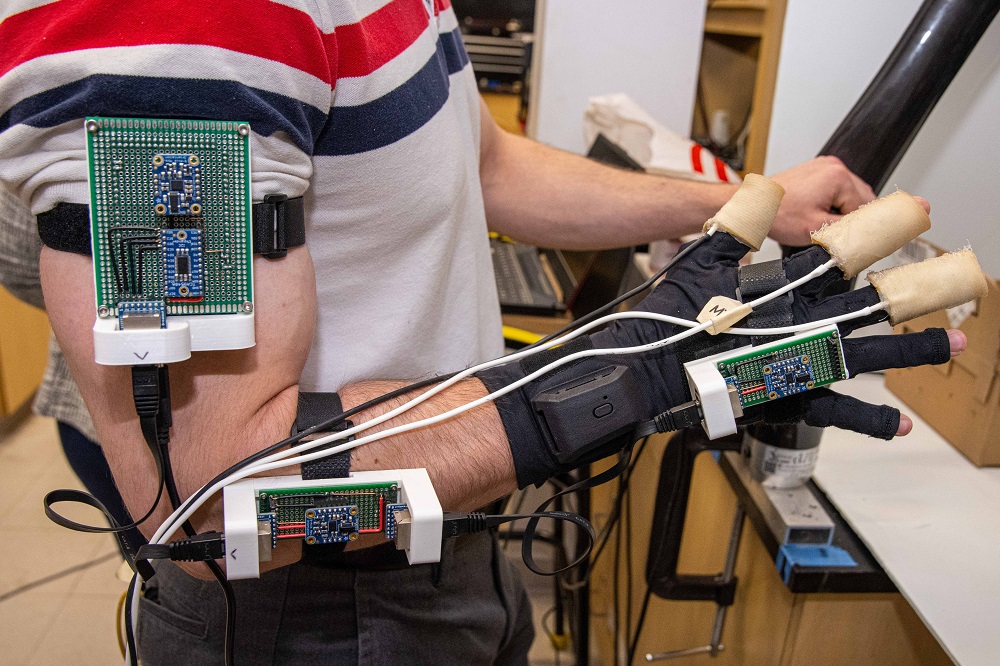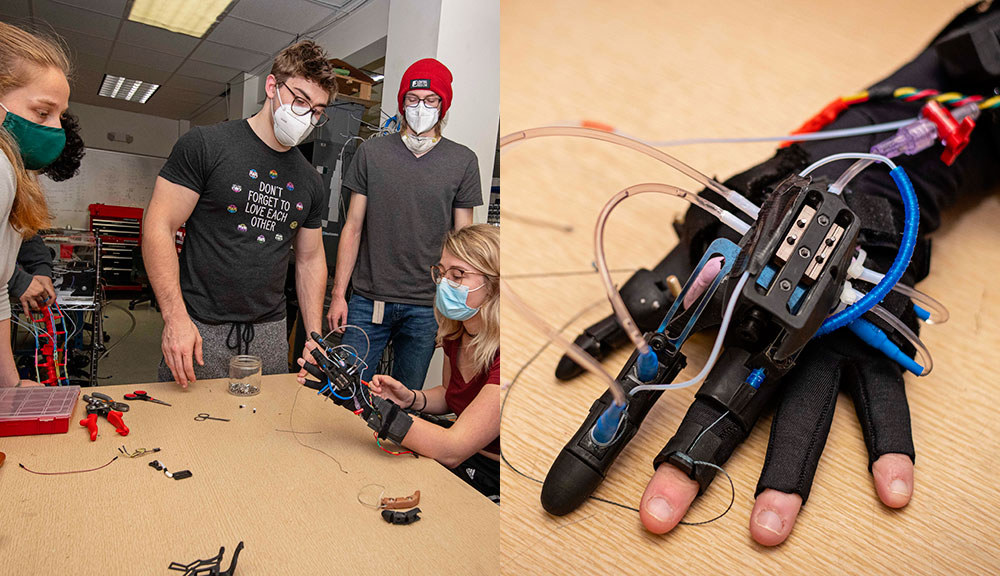For the second consecutive year, a Worcester Polytechnic Institute (WPI) student robotics engineering team has won the Revolutionary Aerospace Systems Concepts Academic Linkage (RASC-AL) Exploration Robo-Ops Competition sponsored by NASA and organized by the National Institute of Aerospace.
The tournament was held from May 30 to June 1 at the NASA Johnson Space Center’s Rock Yard in Houston, Texas. In this year’s Robo-Ops competition, eight university teams were challenged to design and build a planetary rover and demonstrate its capability to perform a series of competitive tasks, which include negotiating specified upslopes and downslopes, traversing sand and gravel pits, picking up specific rock samples and placing them on the rover for the remainder of the course, and driving over rocks of specified diameter. A portion of the WPI team fielded the Oryx 2.0 robot in Houston, while the control team operated it from the Worcester campus.
During the one-hour performance run, WPI located and stored 13 rock samples and one alien life form, far outdistancing CalTech, with four rock samples and one alien life form, and the University of Maryland, with two rock samples. There were five other teams in the competition.
"For the second year in a row, WPI has proved it is one of the premier universities in the nation when it comes to fielding a robust, reliable, innovative, and, might I say, beautiful tele-operated robot," said Pat Troutman, human exploration strategic analysis lead at NASA Langley Research Center, and a Robo-Ops Steering Committee Member. "WPI set the bar higher than any other competitor in the Robo-Ops competition. Not only did WPI win the contest, but they demonstrated remarkable sportsmanship toward all the other participants and did a great job engaging the general public in their activities."
"This accomplishment is a result of the trifecta of skills - mechanical design, electrical system integration, and programming - that our students gain in WPI’s innovative Robotics Engineering Program," said WPI Professor Taskin Padir of the Robotics Engineering Program and the Electrical and Computer Engineering Department. "Once again, our team did an outstanding job in terms of teamwork, professionalism and public outreach."
Oryx 2.0 will be shipped back to the WPI campus in time to be displayed during TouchTomorrow, a free, interactive festival of hands-on exhibits and activities focused on our scientific and technological future, which will take place on WPI’s campus on June 16. The TouchTomorrow festival is a celebration of NASA’s selection of WPI as host and manager of its latest Centennial Challenge – the Sample Return Robot (SRR) Challenge – a national competition with a total prize purse of $1.5 million that was designed to improve NASA’s capability to explore a variety of destinations in space, as well as to enhance the nation’s robotic technology for use in industries and applications here on Earth. The festival will run simultaneously with the SRR Challenge, which will be taking place on and near the WPI campus.
University teams at both graduate and undergraduate levels were eligible to compete in RASC-AL, and each team included a faculty advisor. Qualifying teams were selected to receive a stipend to purchase materials and travel to the Johnson Space Center, where the rovers compete on a planetary analog environment under the supervision of NASA judges. Up to three members of the team, plus the faculty advisor, traveled to Johnson Space Center for the on-site testing. The remaining team members stayed behind at their local universities to conduct "mission control" tasks. The prototype rovers were tele-operated by the university team and were required negotiate a series of obstacles while accomplishing relevant tasks in the quickest time. Cameras allowed the transmission of the competition back to the home universities and to the general public.
WPI team advisors for the RASC-AL competition were Padir, Robotics Resource Center director Kenneth Stafford and Brad Miller. Team members were Joe Amato, Jon Anderson, Tom Carlone, Michael Fagan, Ennio Claretti, Mitchell Wills and graduate students Velin Dimitrov and Ryan Linton.
The WPI team received a $10,000 stipend to partially offset the cost of rover hardware, public engagement activities and travel to the competition. In addition, the 1st Place Award included $5,000 and a travel stipend to attend Desert RATS in the fall, where a NASA-led team conducts technology development research and analog testing in the Arizona desert.
For Second Straight Year, a Team of WPI Students Wins the NASA Robo-Ops Robotics Competition
June 06, 2012
Topics
Offices and Departments





